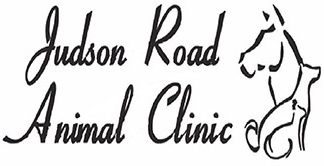Library
-
The anconeal process is a small projection of bone on the ulna, the longer of the two bones of the forearm. If the anconeal process does not fuse to the rest of the ulna correctly during growth, it causes a condition called ununited anconeal process (UAP). This problem appears to be hereditary mostly in large breeds. When this part of the ulna does not fuse, the elbow joint becomes unstable, causing lameness and pain. Treatment requires surgery. Some form of rehabilitation will improve your dog's chances of making a full recovery from surgery and minimize lameness problems.
-
Tumors of the urinary tract may present anywhere from the kidneys to the tip of the urethra. Tumors of the bladder are most common in the dog whereas tumors involving the kidneys are more prevalent in cats. Unfortunately, many tumors of the urinary tract are malignant and treatment options may be limited. Surgery is possible in select cases. Medical treatment may be beneficial in cases where surgery is not possible.
-
Urticaria or 'hives' is a common skin condition in which well-defined raised areas (lumps, wheals or rings) occur in the superficial dermis (an upper layer of the skin). Mostly these areas are quite small but in severe cases whole areas such as the face or one or more of the limbs may become swollen.
-
Every dog has wants and needs, including social interaction, physical exercise, intellectual exercise, and time to rest. When their needs are met predictably and enrichment is consistently available, dogs experience less stress and frustration and may be less likely to develop problematic behaviors.
-
Predictability and trust are important foundations for training your dog. Learning what your dog finds rewarding and strategically providing rewards at the right time will promote the desired behavior to happen more and more often. Punishment techniques using physical force and conflict can result in increased aggression and should be avoided.
-
Uterine tumors are quite rare in North American pets, mainly due to routine spaying practices. Several types of tumors can arise from the tissues of the uterus. This handout discusses uterine tumors in dogs and cats. The various types of these tumors, along with the clinical signs, diagnosis, treatment, and prevention of this condition are outlined.
-
There are five primary reasons for vaccination failure. Vaccine inactivation is one reason and is most commonly caused by warming during shipping and handling. In addition, vaccines are not always 100% effective. Cats may also be unhealthy or too young, leading to vaccine failure. Interference by maternal antibodies can lead to the vaccine being blocked. Lastly, cats receiving overwhelming exposure to a virus may have a failure in the effectiveness of the vaccine.
-
There are six primary reasons for vaccination failure. Vaccine inactivation is one reason and is most commonly caused by warming during shipping and handling. In addition, vaccines are not always 100% effective. Dogs may also be unhealthy or too young, leading to vaccine failure. Interference by maternal antibodies can lead to the vaccine being blocked.
-
A vaccine is a specially-made medicine that stimulates the body to produce an immune response to a particular infection. Most vaccines are given by injection of a small volume of liquid into the muscle, although there are a few given intranasally (i.e., via the nostril) (strangles vaccine), or by mouth (e.g., polio vaccine in humans).
-
Vaginitis refers to inflammation of the vagina and can be a result of several possible underlying causes. Prognosis is generally good, especially if the underlying cause is identified and treated early. The most common clinical signs of vaginitis include increased frequency of urination, licking of the vaginal area, vaginal discharges, and scooting or rubbing of the vaginal area. Diagnostic testing to determine the cause of a dog's condition is helpful in identifying the appropriate antibiotic treatment.

